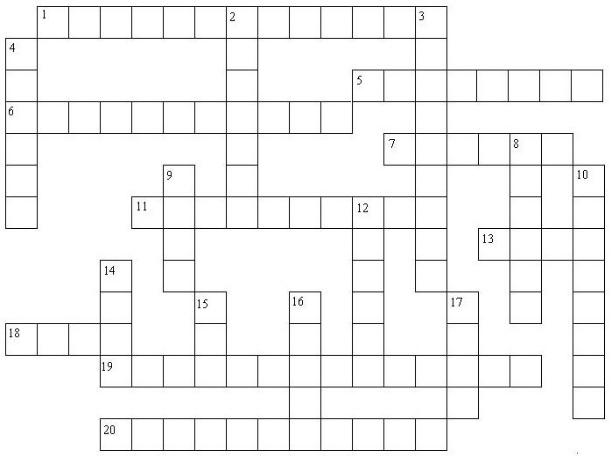
236100
.pdfМИНИСТЕРСТВО ОБРАЗОВАНИЯ И НАУКИ РФ ФЕДЕРАЛЬНОЕ ГОСУДАРСТВЕННОЕ БЮДЖЕТНОЕ ОБРАЗОВАТЕЛЬНОЕ УЧРЕЖДЕНИЕ
ВЫСШЕГО ПРОФЕССИОНАЛЬНОГО ОБРАЗОВАНИЯ «ВОРОНЕЖСКИЙ ГОСУДАРСТВЕННЫЙ УНИВЕРСИТЕТ»
УМК ПО АНГЛИЙСКОМУ ЯЗЫКУ ДЛЯ СТУДЕНТОВ, ОБУЧАЮЩИХСЯ
ПО НАПРАВЛЕНИЮ 080100 «ЭКОНОМИКА», БЛОК ДИСЦИПЛИН «БУХГАЛТЕРСКИЙ УЧЕТ, АНАЛИЗ И АУДИТ»
Часть 1 INTRODUCING ACCOUNTING
Составитель А.В. Малюгина
Издательско-полиграфический центр Воронежского государственного университета
2012
Утверждено научно-методическим советом факультета романо-германской филологии 17 января 2012 г., протокол № 1
Рецензент канд. филол. наук, доц. кафедры английского языка естественнонаучных факультетов ВГУ Н.М. Шишкина
Учебное пособие “Introducing Accounting” подготовлено на кафедре английского языка гуманитарных факультетов факультета романо-германской филологии Воронежского государственного университета.
Рекомендуется для студентов 1-го курса экономического факультета, а также для специалистов в области бухгалтерского учета и аудита.
Для направления 080100 – Экономика
2
Пояснительная записка
Социально-экономические изменения во всех сферах жизни и деятельности человека обусловили актуальность проблемы разработки профильных профессиональных учебных пособий, связанных с будущей специальностью обучающихся.
Учебно-методическое пособие “Introducing Accounting” представляет собой первую часть учебно-методического комплекса, предназначенного для специалистов в области бухгалтерского учета и аудита. В комплекс также входят учебно-методические пособия “Accounting Issues” – часть 2 и “Practice Vocabulary & Reading Tests (Accounting)” – часть 3.
Цель данного пособия состоит в ознакомлении обучающихся с терминологическим минимумом по специальности, формировании умения читать и понимать аутентичные тексты на английском языке, а также использовать их как средство получения необходимой информации в дальнейшей профессиональной деятельности.
Пособие включает серию заданий, нацеленных на преодоление грамматических и терминологических трудностей, развитие различных навыков чтения, профессиональных коммуникативных навыков на основе прочитанных профессионально направленных текстов, содержит упражнения на развитие навыков делового письма и др.
Материал, вошедший в пособие, рассчитан на 30–40 часов аудиторной и внеаудиторной работы.
3

INTRODUCING ACCOUNTING
Lead-in
Work in a group. Ask your partners:
–What is accounting?
–When did it start?
–How has accounting changed in modern times?
–How important is it for people to know English in accounting?
–What are the career prospects for young people in accounting?
–Why have you chosen this career/this course of study?
A Accounts
Read two short texts and study the key terms in accounting
The profession is called accountancy (BrE) or accounting (AmE). The activity is called accounting (BrE and AmE).
Hi, I'm Fiona and I'm an accountant. I work in Edinburgh for one of the big accountancy firms. We look at the financial records or accounts of a lot of companies. We work with the accountants of those companies, and the people who work under them: the bookkeepers. 1 like my profession: accountancy.
Sometimes we act as auditors: specialist outside accountants who audit a company’s accounts, that is, we check them at the end of a particular period to see if they give a true and fair view (an accurate and complete picture). An audit can take several days, even for a fairly small company.
When a company’s results are presented in a way that makes them look better than they really are, even if it follows the rules, it may be accused of creative accounting or window dressing. Of
4

BResults
‘A firm reports its performance in a particular period in its results. Results
for a particular year are shown in the company's annual report. This contains, among other things, a profit and loss account.
In theory, if a company makes more money than it spends, it makes a profit. If not, it makes a loss. But it's possible for a company to show a profit for a particular period because of the way it presents its activities under the accounting standards or accounting rules of one country, and a loss under the rules of another. My firm operates in many countries and we are very aware of this!
A pre-tax profit or a pre-tax loss is one before tax is calculated. An exceptional profit or loss is for something that is not normally repeated, for example the sale of a subsidiary company or the costs of restructuring. (See Unit 34) A company’s gross profit is before charges like these are taken away; its net profit is afterwards. The final figure for profit or loss is what people call informally the bottom line. This is what they really worry about!
If a company is making a loss, commentators may say that it is in the red. They may also use expressions with red ink, saying, for example, that a company is bleeding red ink or hemorrhaging red ink.’
BrE: profit and loss account
AmE: income statement
Look at A and В above to find the answers to the crossword.
Across: |
Down: |
1 and 2 down. What the British call the |
2. See 1 across. |
income statement. (6, 3, 4, 7) |
3. See 12 down. |
5

5. What accounts have to follow. (8) |
4. Before tax is taken away. (3-3) |
6. Not occurring regularly. (11) |
8. You find this in an annual |
7. When companies announce results they |
report. (6) |
_______ them. (6) |
9. Not a profit. (4) |
11. The final figure for profit or loss. (6, 4) |
10. Accounting that presents things |
13. Another name for 'standard'. (4) |
in a positive light. (8) |
19 and 16, 18, 14 down. What accounts |
12, 3 down. What Americans call |
should give. (4, 3, 4, 4) |
the profit and loss account. (6, 9) |
20. When things are made to look better |
14, 16, 18 See 19 across. |
than they really are. (6, 8) |
17. Noun and verb related to |
21. Known as accounting in the US. (11) |
‘auditor’. (5) |
6
DEFINITION OF ACCOUNTING
Read the text and complete it with the words in the box.
assets |
bookkeeping |
credit |
debit |
relationships |
errors |
practices |
principles |
reform |
entries |
transactions |
measures |
|
|
|
|
|
|
Accounting is the measurement of financial (1) __________ which are transfers of legal property rights made under contractual (2) __________. Nonfinancial transactions are specifically excluded due to conservatism and materiality principles. At the core of modern financial accounting is the double entry (3) __________ system. This system involves making at least two (4)
__________ for every transaction: a (5) __________ in one account, and a corresponding (6) __________ in another account. Basically, the sum of all debits should always equal the sum of all credits; this provides a simple way to check for (7) __________. This system was first used in medieval Europe; however, claims have been made that the system dates back to Ancient Rome or Greece. According to critics of standard accounting (8) __________, accounting has changed little since. In each generation, accounting (9) __________ of some kind has been made in order to try to keep bookkeeping relevant to capital (10)
__________ or production capacity, but such changes have not altered the basic (11) __________ of accounting. In recent times, the divergence of accounting from economic principles has resulted in controversial (12) __________ to make financial reports more indicative of economic reality.
7
Match the remarks on the left with the responses on the right:
1. You're an accountant? Does that |
а) Ha! Now you're going to ask |
|||
mean you spend your time writing |
me to tell you how you can pay |
|||
down credits and debits, and |
less tax. |
|
|
|
adding up columns of figures all |
|
|
|
|
day? Can't be very exciting. |
|
|
|
|
|
|
|
||
2. So what do accountants do? |
b) No, managerial |
accountants |
||
|
do, but I work in cost accounting. |
|||
|
We have to work out the real cost |
|||
|
of each item the company makes, |
|||
|
which means finding a way to |
|||
|
allocate all the overheads to |
|||
|
different products. |
|
||
|
|
|||
3. You mean the shareholders? |
c) No, not only. Managers always |
|||
|
need the help of accountants. |
|||
|
They |
need |
financial statements, |
|
|
and budgets, and cash-flow |
|||
|
projections, and so on, to |
|||
|
measure the success of what |
|||
|
they've done, and to make |
|||
|
decisions |
about |
allocating |
|
|
resources for future projects. |
|||
|
|
|||
4. So you prepare reports for |
d) Of course. But like I said, |
|||
managers? |
we're |
necessary. |
And useful. |
|
|
Haven't you heard of "window |
|||
|
dressing"? |
|
|
|
|
|
|||
5. And the cost of the accounts |
e) Sure, but it's also another name |
|||
department! |
for |
what |
some |
people call |
|
|
|
|
|
8

|
|
|
|
|
|
|
|
|
"creative accounting" - making a |
||||||||
|
|
|
|
|
|
|
|
|
company's |
financial |
situation |
||||||
|
|
|
|
|
|
|
|
|
look as good as possible in the |
||||||||
|
|
|
|
|
|
|
|
|
balance sheet, and so on. It's not |
||||||||
|
|
|
|
|
|
|
|
|
very legal, but it happens. The |
||||||||
|
|
|
|
|
|
|
|
|
accountants in my firm also have |
||||||||
|
|
|
|
|
|
|
|
|
lots of wonderful ways of |
||||||||
|
|
|
|
|
|
|
|
|
reducing our tax bill. |
|
|
|
|||||
|
|
|
|
|
|
|
|
|
|
|
|
|
|
|
|||
6. You mean what they do in the |
|
f) That's bookkeeping. Not quite |
|||||||||||||||
front of shops? |
|
|
|
|
the same thing. |
|
|
|
|||||||||
|
|
|
|
|
|
|
|
|
|
|
|
|
|
|
|||
7. Ah, now that's interesting... |
|
g) Well, accountants do record |
|||||||||||||||
|
|
|
|
|
|
|
|
|
cash flows, and the value of |
||||||||
|
|
|
|
|
|
|
|
|
assets and liabilities, and they |
||||||||
|
|
|
|
|
|
|
|
|
calculate profits and losses, and |
||||||||
|
|
|
|
|
|
|
|
|
so on. But it's not just writing |
||||||||
|
|
|
|
|
|
|
|
|
down numbers. We're really in |
||||||||
|
|
|
|
|
|
|
|
|
the business of supplying people |
||||||||
|
|
|
|
|
|
|
|
|
with information. |
|
|
|
|||||
|
|
|
|
|
|
|
|
|
|
|
|
|
|
|
|
|
|
8. Not at all. As a matter of fact, |
|
|
|
|
|
|
|
|
|
|
|||||||
I'm a tax inspector... |
|
|
|
|
|
|
|
|
|
|
|
|
|
||||
|
|
|
|
|
|
|
|
|
|
|
|
|
|
|
|
|
|
|
|
|
|
|
|
|
|
|
|
|
|
|
|
|
|
|
|
1 |
|
2 |
|
|
3 |
|
|
4 |
|
5 |
|
|
6 |
|
|
7 |
|
|
|
|
|
|
|
|
|
|
|
|
|
|
|
|
|
|
|
Fill in the missing words in the sentences below. Choose from the following. You should use each word more than once.
account accounts accountant accounting accountancy
9

1.Can you check that the figures have been entered correctly in the bank
_______________?
2.He's at university studying _______________.
3.The management of the company have not yet decided on their
_______________ policies.
4.A bookkeeper writes details of financial transactions in the
_______________.
5.Most people in the profession read _______________ magazines and journals in order to stay informed.
6.She's been working as an _______________ with this firm for several years now.
7.The directors of the company approve the _______________ at the end of the _______________ year.
8.The chief _______________ has completed the draft _______________
for this year.
9. |
Each branch maintains its own full _______________ |
system. |
|
10. |
They have opened an _______________ for |
the |
consignment to |
|
Bombay. |
|
|
11._______________ is really not an exact science.
12.A business manager needs some _______________ knowledge in order to understand what he reads in the company_______________.
What is the meaning of the phrases in bold in the sentences (1 – 10) below? Choose the correct definition from the list (a – j) on the right.
1. How do you account for the sudden fall in the a) people say stock value?
2. |
Agents buy and sell goods on their own |
b) report |
|
account. |
|
10
